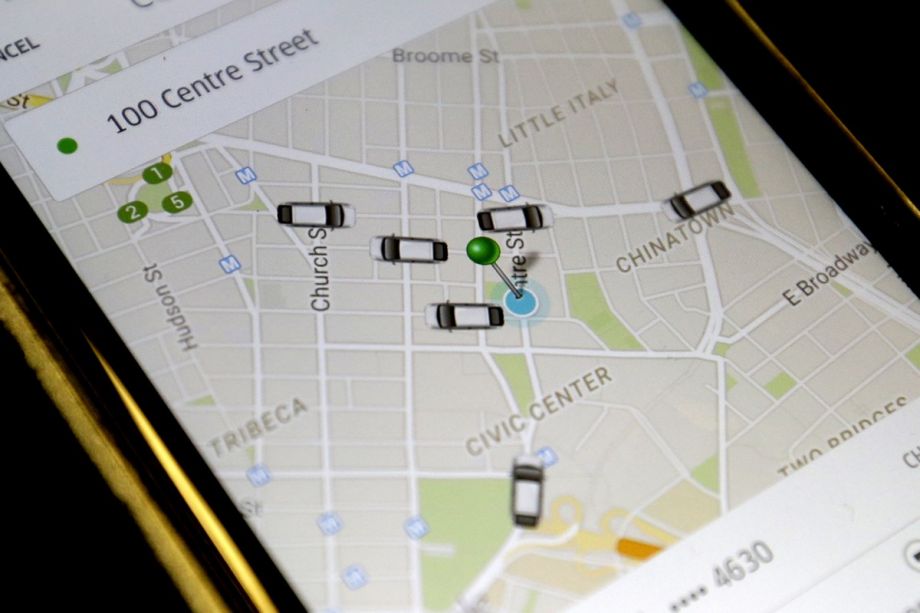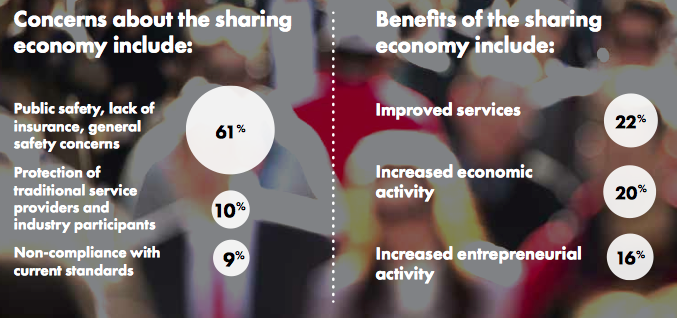
Since the first rumblings of Uber and Airbnb, the so-called “sharing economy” has expanded rapidly, and responding to such fast growth has forced cities to quickly shape and shift regulations for an industry that is increasingly affecting the urban landscape, economically and culturally.

In a new survey from the National League of Cities, a survey of 245 cities found that there’s a distinct trend toward wanting to see the “sharing economy” continue to grow and to flourish.
“When asked to identify the greatest benefit of the sharing economy, 22 percent of city leaders identified improved services, 20 percent identified increased economic activity, and 16 percent identified increased entrepreneurial activity.”
The enthusiasm comes with reservations, however. Convenience doesn’t necessarily mean safety, and persistent headlines about the pitfalls and possible threats, as well as the ongoing legal battles, of ride-sharing and other similar businesses, clash with perceived benefits. Concerns about safety top the list of worries in the survey.
By a large margin, 61 percent of city leaders were most concerned with public safety, specifically identifying the lack of comparable insurance coupled with general safety concerns. Other areas of concern included the protection of traditional service providers and industry participants (10 percent) and non-compliance with current standards (9 percent).
From our partners:
Cities throughout California and elsewhere are still shaping so-called Airbnb laws for home-sharing, and many survey participants stressed the need for regulating such businesses.

A majority of the cities surveyed (56 percent) affirmed that developing new policies to address the sharing economy is important. Some respondents expressed interest in developing new policies for certain segments of the sharing economy, with 49 percent rating the development of ridesharing policies as important and 41 percent rating the development of homesharing policies as important. This distinction likely reflects the experiences that different cities have with different sharing economy services, and the over-arching policy priorities that guide their decisions.
Nonetheless, support for growth of the industry from local government is at 71 percent.
More than anything, the survey suggests that we are only in the initial phases of the new economy and that traditional businesses will begin to adapt to new methods.
“Cities make the sharing economy work,” said National League of Cities President Ralph Becker, who is the mayor of Salt Lake City. “It’s clear that city leaders understand that their communities demand the innovative services provided by the sharing economy.”
This feature is adopted from NextCity.















